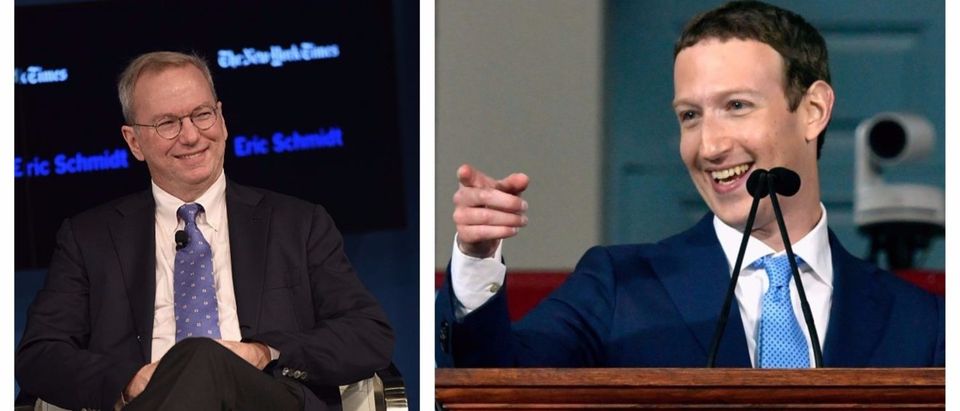Americans are very wary of tech companies’ ability to stop foreign governments trying to influence U.S. elections through the respective platforms, according to a poll conducted by Axios.
When surveyed, 43 percent of all respondents said they didn’t trust the federal government nor firms like Facebook, Google, and Twitter, to safeguard their services from being inappropriately used by outside powers. Roughly 17 percent said they believe in tech companies the most in that regard, while 15 percent said the federal government and 20 percent answered “both.”
When accounting for political affiliation, 51 percent of Republicans compared to 35 percent of Democrats said they trust neither entities to abate foreign influence of U.S. elections. Specifically, 13 percent of Republicans and 21 percent of Democrats trust tech companies the most. Independents, on the other hand, by far have the least confidence in the federal government’s capabilities in such a respect, with only 9 percent saying its the most trusted group, and 49 percent overall saying “neither.”
The poll comes just before Facebook, Google and Twitter are set to testify Tuesday and Wednesday before the Senate Judiciary subcommittee — a hearing centering on allegations of Russian interference in the run up to the 2016 U.S. presidential election.
Congressional investigators, including special counsel Robert Mueller, have been looking into how the tech corporations’ have been utilized (or exploited) by Russian operatives. All the companies appear to be cooperating so far, handing over critical files and providing the public with some updates.
While attempts of intervention from Russia seem likely, how much of an affect it had on the ultimate outcome is at best questionable.
Most of the advertisements, for example, did not focus on President Donald Trump or then-Democratic presidential candidate Hillary Clinton, and the ad sales merely amounted to $100,000, a very meager amount, especially in a two-year time span and relative to the larger, massive political advertisement ecosystem. And economists at Stanford and New York University conducted a study that showed the extremely limited extent “fake news” played in swaying minds. (RELATED: Former Hillary Clinton Strategist Refutes Claims That $100,000 Had Huge Impact On Election)
It does, however, show at least the prospect of Russian companies — which possibly have connections to the Kremlin — trying to cultivate an even further schismatic political landscape in America.
Facebook CEO Mark Zuckerberg expressed atonement during the closing hours of the Jewish holiday Yom Kippur after finding out that certain users employ the social media platform “to divide people.” Earlier, he apologized for calling the idea that “fake news” could impact the 2016 presidential election “pretty crazy.” But Zuckerberg sometimes seems to play both sides, because while he purportedly believes that false news on Facebook did have an effect to some extent, he still chose to defend his company on several occasions during the ostensibly remorseful appeal. He, for example, even referenced the fact that “campaigns spent hundred of millions advertising online to get their messages out even further” and “that’s 1000x more than any problematic ads we’ve found.”
If the acts of contrition are somewhat feigned, it could be a way of acquiescing to the demands of federal officials and the public who have recently been clamoring over the growing powers of Facebook and the rest of Silicon Valley. Twitter seems to be giving in to the pressure as well, after relinquishing its business relationship with Russian news agencies Russia Today (RT) and Sputnik. The move makes it unclear where the company draws the line as a number of other media outlets have likely attempted to shape minds for certain beliefs.
Twitter, Google, Facebook and other U.S. tech companies may not have felt it was their utmost responsibility to keep certain bad actors off their platforms since they were all originally designed to be a medium of free expression. But that seems to shifting as the public’s confidence dwindles, and pressure heats up.
Send tips to eric@dailycallernewsfoundation.org.
All content created by the Daily Caller News Foundation, an independent and nonpartisan newswire service, is available without charge to any legitimate news publisher that can provide a large audience. All republished articles must include our logo, our reporter’s byline and their DCNF affiliation. For any questions about our guidelines or partnering with us, please contact licensing@dailycallernewsfoundation.org.


